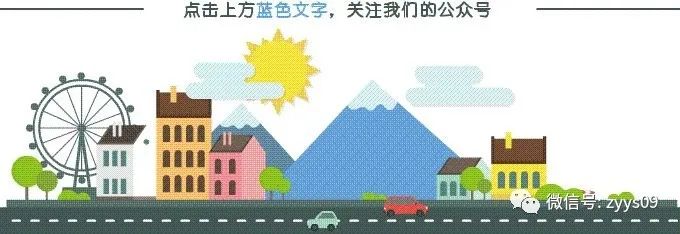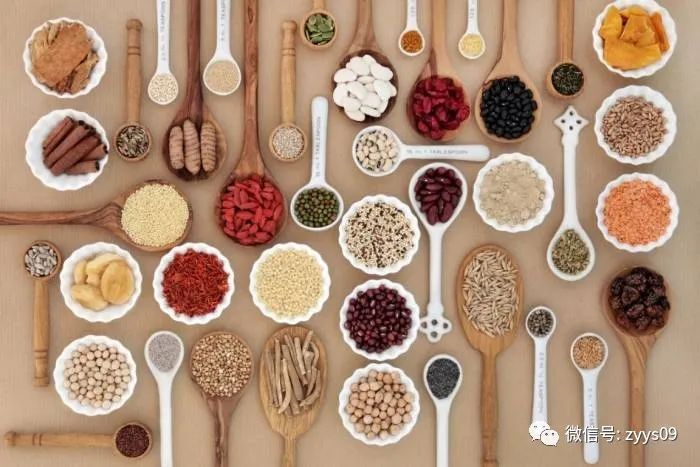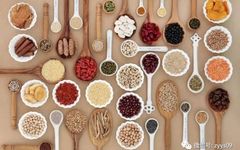

1. Cong Gen (Scallion Roots)
Effects of Cong Gen: disperses wind-cold, reduces inflammation, kills bacteria, prevents colds and bronchitis, unblocks obstructions.
Treatment for early-stage colds: Boil Cong Gen with Cong Bai (Scallion Whites) in water, take three times a day.
Method for cold salad with Cong Gen: Clean the scallion roots, salt them for 10 minutes, then marinate with sugar and vinegar.
Treatment for severe wind-cold colds: Cut the whole Cong Gen with Cong Bai, add a few slices of Sheng Jiang (Fresh Ginger) and Chen Pi (Dried Tangerine Peel), boil in water for 3-5 minutes (do not add ginger for wind-heat colds).
How to distinguish between wind-heat and wind-cold colds:
Wind-heat cold: sore throat, yellow phlegm.
Wind-cold cold: no sore throat, more itchy, white phlegm.
2. Bai Luo Bo Pi (White Radish Skin)
Effects of Bai Luo Bo Pi: contains mustard oil, can reduce inflammation, kill bacteria, relieve qi, transform phlegm, and stop cough; can treat wind-heat colds and reduce edema (can also reduce swelling in pregnant women, but Bai Luo Bo Pi must be eaten alone).
Bai Luo Bo Pi mainly acts on the lungs, while Hu Luo Bo (Carrot) mainly acts on the spleen and stomach.
Effects of Hu Luo Bo Pi: helps children improve appetite, aids digestion, transforms phlegm.
Hu Luo Bo and Bai Luo Bo should not be eaten together.
All raw foods are yin in nature; cooking increases yang but does not change the inherent properties of the food.
3. Li Zi Pi (Pear Skin)
Effects of Li Zi Pi: stops diarrhea, treats wind-heat cough.
Method for stewing pears with rock sugar: Core the pear, add Chuan Bei (Fritillaria), and rock sugar to stew together. Suitable for: lung dryness cough, yin deficiency with excess heat, elderly dry cough without phlegm. Chuan Bei stewed pears are not suitable for children; generally, red wine stewed pears are more appropriate.
Method for red wine stewed pears: Core and cut the pears (do not peel), place in a pot, pour in red wine to cover the pears, do not cover the pot, boil on high heat, then simmer for 10 minutes.
Effects of red wine stewed pears: can moisten the lungs, beautify the skin, eliminate phlegm heat, and relieve food stagnation in winter.
Method to remove pesticide residues from fruit skins: Add a small amount of flour to clean water, soak the fruit for 10 minutes, then wash clean. Do not wash fruit with salt, as salt has a solidifying effect.
4. Ji Dan Ke (Eggshell)
How to consume eggshells: Grind into powder with a blender, mix with warm water or eat with porridge.
Eating eggshells will not cause kidney stones.
Effects of eggshells: replenish calcium, remedy the side effects of eating eggs, regulate gastric ulcers; continuous consumption for one to two weeks can eliminate gastric ulcers.
Adults should only consume 10 grams of eggshell powder at a time.
Dosage of eggshell powder: 1 gram for 1-year-old children, 2 grams for 2-year-olds, and so on; for those over 10 years old, use 10 grams.
Method to sterilize eggshells: First, wash the eggshells clean, then boil in water for 10 minutes.
Taboos for eating eggs: Overcooking eggs until they are charred can be carcinogenic; the best cooking time for eggs is three minutes. Undercooking, like soft-boiled eggs, can be fatal.
Cooking eggs in rice porridge (preferably with brown rice) has the effect of tonifying the middle and benefiting qi.
5. Ju Pi (Tangerine Peel)
When eating tangerines, it is advisable to eat the tangerine pith together to avoid excess heat.
Effects of tangerine pith: can unblock the meridians and assist in treating chronic diseases and sub-health conditions.
How to consume tangerine pith: directly brew with boiling water and drink as tea.
Effects of fresh tangerine peel: anti-inflammatory, antibacterial, dispels wind-cold, aids sleep, calms the mind, and eliminates odors.
Consuming fresh tangerine peel can treat early-stage colds and constipation.
Secret recipe for treating early-stage colds: Wash fresh tangerine peel with fine salt, then wash with flour water, cut into small pieces, and take with boiled sweet wine.
Secret recipe for treating constipation and bad breath: Brew fresh tangerine peel in boiling water to drink, which can treat constipation and eliminate bad breath.
Effects of Chen Pi: regulates qi, transforms phlegm, stops cough, strengthens the spleen and stomach, warms the stomach, disperses cold; Chen Pi has auxiliary effects on all medicinal materials, aids in weight loss, and dispels dampness.
Wonderful use of Chen Pi: Adding Chen Pi when cooking meat can help digestion and eliminate odor; it can also treat high fever.
Effective method for reducing fever: 1 Chen Pi + 30 grams of Can Sha (Silkworm Excrement) + 30 grams of Zhu Ru (Bamboo Shavings) boiled in cold water, bring to a boil for 5 minutes, then drink in two doses with a three-hour interval; generally, three doses can reduce fever.
Brewing Chen Pi tea with boiling water can aid in weight loss, dispel dampness, and promote bowel movements. Chen Pi that has been stored for over a year can be used medicinally.
Effects of tangerine leaves: Treats mastitis in postpartum women: Stewing pig trotters with tangerine leaves can prevent or treat mastitis.
Method for stewing pig trotters with tangerine leaves: Place pig trotters in a cold pot, add a large handful of tangerine leaves and stew together.
Stewing pig lungs with tangerine leaves can treat lung heat cough.
Neither the stewed pig trotters nor the pig lungs should have any seasonings added to avoid affecting the medicinal properties.
6. Gui Yuan (Longan), Gui Yuan Pi (Longan Shell), and Gui Yuan He (Longan Seed) are all traditional Chinese medicines.
Effects of Gui Yuan Pi: dispels wind, detoxifies, and prevents dizziness and deafness.
Effects of Gui Yuan He: moves qi, disperses lumps, reduces swelling, dispels dampness from the lower jiao, and treats hernias and eczema.
Method for treating eczema with Gui Yuan He: Boil Gui Yuan He with water for 30 minutes, then drink.
San Pao Tai (Longan, Goji Berries, Rock Sugar) has health benefits and can delay aging.
Health method with Gui Yuan: Boil whole longans (do not shell) in water or brew as tea.
1. Hu Jiao (Pepper) is a warming spice.
Pepper warms the kidneys; eating pepper does not cause excess heat and can draw fire back to the source, reducing deficiency heat.
Eating pepper powder in stewed eggs can draw fire back to the source and reduce deficiency heat.
2. Wei Jing (MSG) is not good; chicken essence is better.
The main component of chicken essence is also MSG, but it adds some flavor enhancers that give it a chicken flavor. However, compared to MSG, chicken essence contains additives, while MSG is primarily sodium glutamate, a trace nutrient. You can use homemade mushroom powder and soybean powder as seasoning.
3. Pickled vegetables contain nitrites and should not be eaten in excess.
Actually, properly fermented pickled vegetables do not contain nitrites. Moreover, pickled vegetables produce a large amount of lactic acid bacteria during fermentation, which can maintain intestinal (ecological) balance. Additionally, pickled vegetables can decompose the fats in meat, making it easier to digest and helping your body quickly eliminate toxins.
Exclusive recipe for making pickled vegetables:
It is best to use a ceramic jar without glaze on both sides (using a jar helps with the fermentation of pickled vegetables).
1. Do not add a drop of water to the pickled vegetables; use sweet wine (pour out the wine and do not use rice); 2. Add 20 grams of Sichuan pepper and 20 grams of brown sugar; 3. Add the vegetables to be pickled (for the first time, add cold peppers, ginger, and bell peppers first); 4. Finally, add coarse salt.
The leftover juice from tofu fermented in jars can be used to make pickled vegetables.
4. Do not cut off the heads and tails of food:
Do not cut off the heads and tails of food; every food itself is complementary in yin and yang.
5. Dang Gui (Angelica) is a supplement for women and is not suitable for men: Dang Gui has the function of nourishing blood and activating blood circulation, and is suitable for both genders.
6. Ejiao (Donkey-hide Gelatin) is a great tonic:
Ejiao has the effect of stopping and replenishing blood, but most people should be cautious when consuming it; it is suitable for those with excessive menstrual bleeding.
Generally, people should consume Ejiao with Huang Jiu (Yellow Wine) and pepper; it is not suitable for consumption in summer, and women should avoid it during menstruation.
Women should consume rose sugar, which has better health effects than brown sugar. Ingredients: rose petals, brown sugar.
Rose vinegar can be consumed, has beauty benefits, can be used as a facial mask, and has whitening and freckle-removing effects. Ingredients: rose petals, white vinegar.
Ren Shen (Ginseng) is not a health supplement; consuming it incorrectly can be fatal! Eating Xi Yang Shen (American Ginseng) does not tonify qi but can cause cold dampness and diarrhea. Bai Da Hai (Fat Sea) should not be used casually, as it can seriously harm the body! Bai He (Lily) is not suitable for those with deficiency and most coughs; Tian Ma (Gastrodia) is a misconception for brain tonification! Hong Zao (Red Dates) can generate damp heat in the spleen and stomach, leading to weight gain; it is not suitable for long-term consumption by everyone. What are the correct and effective methods for tonification? The encyclopedia will explain it all for you.
Taking supplements correctly is medicine; taking them incorrectly is poison.
Misconceptions about supplements:
1. Ren Shen is the best health supplement; it is a medicine that should be taken under medical advice.
Ren Shen is only suitable for weak individuals; normal people should use it cautiously, and those who often stay up late should not consume it. Ren Shen is a great tonic for vital energy and should only be consumed under a doctor’s guidance. The wonderful use of Ren Shen: When you participate in exams or important meetings, placing a small piece of Ren Shen under your tongue can invigorate and focus your attention.
2. Xi Yang Shen (American Ginseng) is a great tonic.
Xi Yang Shen is a cooling tonic, primarily clearing heat and supplementing as a secondary effect; those with yin deficiency and internal heat can use Xi Yang Shen appropriately.
3. Bai Da Hai tea treats pharyngitis.
Bai Da Hai is very cold and can affect the kidneys; it can be consumed for severe lung heat, dry cough, and sore throat.
Excessive talking and staying up late can lead to pharyngitis; Luo Han Guo (Monk Fruit) is the best health supplement for pharyngitis, phlegm transformation, and cough suppression, suitable for all ages.
Method for boiling Luo Han Guo: Break the Luo Han Guo by hand, boil in cold water for over 20 minutes, and drink as tea.
4. Bai He is suitable for dry cough or cough with blood; it is not suitable for wind-cold or phlegm cough.
5. Tian Ma is not for brain tonification; Tian Ma stewed with fish head can treat long-term dizziness.
Eating the right home-cooked meals is also a great tonic; drinking porridge correctly is also a great tonic.
Rice soup – the poor man’s ginseng soup; rice soup is beneficial for colds and tonifies the middle qi, strengthens the spleen and stomach, and clears lung qi.
Method for making rice soup: Boil rice in water for 5-8 minutes, strain the soup, and only drink the soup.
The difference between rice soup and millet porridge: millet porridge tonifies the kidneys and clears stomach heat, suitable for drinking in winter; rice soup with brown sugar is suitable for postpartum women and is a great tonic.
Chen Pi Porridge (Autumn and Winter Health Porridge)
Effects: People in autumn and winter are more prone to internal heat, phlegm, and colds. Chen Pi has the effect of regulating qi and transforming phlegm, while rice porridge has the effect of tonifying qi; the combination of the two achieves twice the result with half the effort. This porridge can prevent diseases in autumn and winter while tonifying qi and enhancing resistance. Method: Cook a handful of Chen Pi with rice to make porridge.
Peanut Porridge (tonifies qi and blood, moistens the lungs)
Method: Take a handful of peanuts, do not remove the red skin, and cook porridge with rice.
Effects: Nourishes qi and blood, moistens the intestines, and beautifies the skin.
Suitable for: Anemia, rough skin, dryness, and elderly individuals with habitual constipation.
Hui Xiang (Fennel) effects: warms the stomach, tonifies the kidneys. How to eat: eat as a cold dish. Additionally, Xiao Hui Xiang (Small Fennel) greatly tonifies kidney yang.
Uses: a. Xiao Hui Xiang + He Shou Wu (Fo-Ti) + Pig Stomach = treats chronic gastritis. Principle: It regulates the liver and tonifies the kidneys, as chronic gastritis is related to liver and kidney issues, so this dish can cure chronic gastritis.
Method: First, clean the pig stomach (the teacher introduced the cleaning method), place Xiao Hui Xiang seeds and Sheng He Shou Wu inside the pig stomach, sew it up with coarse cotton thread. Boil in cold water, turn to low heat after boiling, and stew until the pig stomach is cooked (40 minutes to an hour), without adding any seasonings, as it would affect the medicinal properties. After cooking, remove the thread, eat the stomach, and drink the soup. It can be consumed over two days. Stew once a week, and after three weeks, results can be seen; generally, it takes three to seven weeks to cure. Special reminder: He Shou Wu should not be cooked with iron utensils, only use clay pots for stewing.
b. Xiao Hui Xiang’s wonderful use: Place Xiao Hui Xiang with salt in a cloth bag, heat in the microwave for three minutes, and apply to the painful area or cold area to tonify the kidneys.
Yin Er (Tremella) Soup (Commoner’s Bird’s Nest)
Effects:
1. Nourishes the lungs, moisturizes the skin, removes spots, alleviates skin dryness and cracking, and prevents chapped lips.
2. Nourishes the heart, calms the mind, and improves sleep.
3. Nourishes stomach yin. Can regulate chronic gastritis and bad breath.
4. Can moisten the intestines and treat constipation in the elderly.
5. Long-term chronic disease patients can consume Yin Er to nourish the body.
Method: Soak Yin Er in hot water overnight, pour boiling water over it, and cook in the morning, adding rock sugar and boiling for ten minutes.
Seaweed Soup effects: anti-cancer, tumor reduction, phlegm transformation. Seaweed soup is cold and needs to be cooked with shrimp skin and eggs.
Silkworm Pupa effects: greatly tonifies kidney essence; anyone with kidney deficiency can benefit. Delays aging. Can be eaten roasted or fried, and should be consumed entirely. Anyone can eat it. Must be cooked and salted before eating. Fruits can be natural tonics. Sang Shen (Mulberry) effects: nourishes the heart, kidneys, liver, and brain. Treats tinnitus, palpitations, insomnia, dry mouth, bad breath, and those with blood deficiency and constipation can eat more; children can eat more to enhance intelligence. Tinnitus has two types: one is a rumbling sound, indicating liver yang rising; the other is a fine sound, indicating kidney yin deficiency. Method: Boil in water for 10 minutes, can also be added to porridge or soaked in wine. In herbal shops, it is called black mulberry. Special reminder: Stop using when experiencing diarrhea.
Kiwi (Longevity Fruit) promotes longevity; only one kiwi should be eaten per day. Generally, fruits are eaten before meals, but kiwis should be eaten after meals to aid digestion. Kiwis can digest meat as a digestive enzyme. Effects of kiwi: detoxifies and protects the liver, alleviates discomfort after drinking, clears stomach heat, and relieves liver and gallbladder damp heat; high in trace elements and vitamins; those with spleen and stomach deficiency and cold should not eat more than one a day, as kiwis are cold in nature. Kiwis can be cooked (they are not afraid of high temperatures). Eating one a day can replace vitamin and calcium supplements.
Make a pot of soup to nourish the whole family.1. Jiu Zao Ji (Wine Lees Chicken) (Ten Complete Tonics) has the effects of nourishing the five organs, tonifying qi, and replenishing blood, suitable for those with chronic illness, postpartum women, and children. Method for Jiu Zao Ji: Cut the free-range chicken (native chicken, free-range chicken, or black chicken for kidney deficiency) into pieces and fry until cooked. Add the fried chicken pieces to sweet wine (liquor) and boil, then serve with both chicken and lees (do not add any seasonings). Jiu Zao Ji can moisten the intestines, tonify qi, replenish blood, strengthen the spleen and stomach, moisten the lungs, regulate liver function, and tonify the kidneys. Normal people should not eat Jiu Zao Ji every day; pregnant women and those with deficiency can eat it for two to three weeks.
Jiu Zao (sweet wine) effects: tonifies the kidneys, regulates liver function, benefits the skin, replenishes blood, and promotes lactation. Women should not be without Jiu Zao (sweet wine) throughout their lives. Those with phlegm-damp constitution should eat less Jiu Zao (sweet wine); before consuming Jiu Zao, the alcohol should be boiled off. Jiu Zao can replace cooking wine. Glutinous rice tonifies kidney qi. It is hard to digest; Jiu Zao is made from fermented glutinous rice. It is easy to digest and primarily tonifies qi, following the liver meridian. When cooking, do not add wine; you can use Jiu Zao or Huang Jiu (Yellow Wine). Huang Jiu is also the essence of glutinous rice and has the effects of tonifying the kidneys and replenishing blood. Women should take spleen and blood tonics with warm Huang Jiu; men should take kidney tonics with light salt water.
2. Yang Rou Gan Cao Tang (Lamb and Sugarcane Soup) (Winter Nourishing Soup for the Whole Family) lamb is warming and can easily generate dryness and heat; those with yin deficiency and excess heat should not eat it. Sugarcane can generate fluids, quench thirst, eliminate stomach heat, nourish stomach yin, increase gastric juice, neutralize medicinal properties, and detoxify. Method for Yang Rou Gan Cao Tang: Peel the sugarcane and cut it into sections, cut the lamb into pieces (bone-in lamb is better), blanch in water, then boil in cold water, add sugarcane, and simmer on low heat until the lamb is cooked. Before serving, add a little pepper and salt to taste.



